From peanut butter and jelly to paint and brushes, some things work better when they’re together — like companion plants. Companion planting is the gardening method of strategically growing certain plants near each other so that one (or both!) thrives more than they would alone. While the benefits of companion plants — such as better soil nutrient quality, fewer pests and even better flavour — can be a boon to your garden any time of year, we love how growing certain pairs of plants together can help keep your fall garden bountiful.
While the best plant pairings may take some trial and error depending on your garden’s unique factors (like location, soil conditions and seasonal temperatures), certain veggies, herbs and even flowers tend to be good bets in the autumn. Here are 10 of our favourite companion plants to try in your vegetable garden this fall.
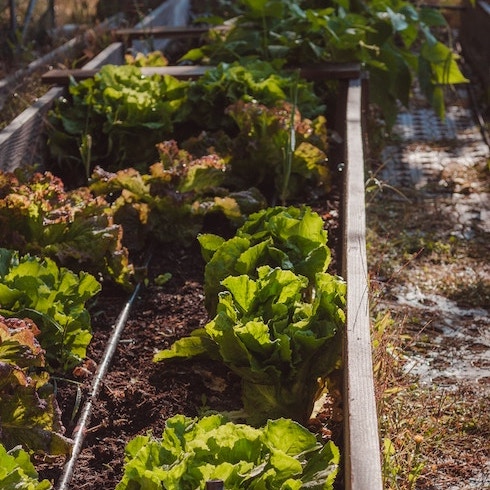
Winter Lettuce and Radishes
If you’re new to fall veggie gardening, lettuce is a great place to start. Not only is lettuce a fast-growing, beginner-friendly crop, but it also flourishes in the cooler temperatures of autumn. However, lettuce tends to attract pests. This is where radishes can be a big help as companion plants for lettuce. When planted near your lettuce, quick-growing radishes attract common lettuce-destroying pests like aphids (though it should be noted that your radish crop may be sacrificed to save your lettuce).
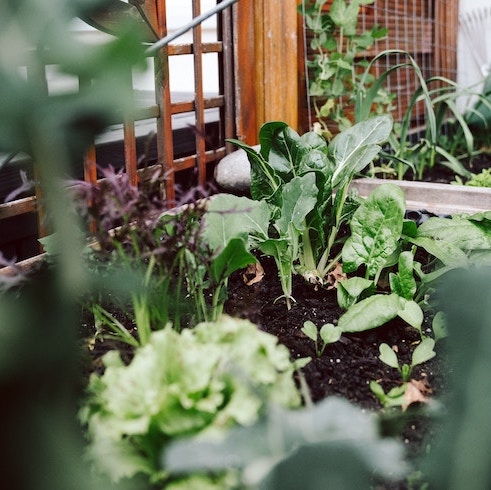
Spinach and Onions
Similar to lettuce, spinach is another leafy green veggie that grows well in cool-season gardens, but also attracts pests like aphids. To protect your fall spinach crop, try planting onions, as onion bulbs emit a strong scent that can help repel pests. Beyond just pest deterrence, onions also make great companion plants for spinach when you want to maximize your garden’s space. Why? Spinach grows horizontally, while onions grow vertically, so they can grow together harmoniously.
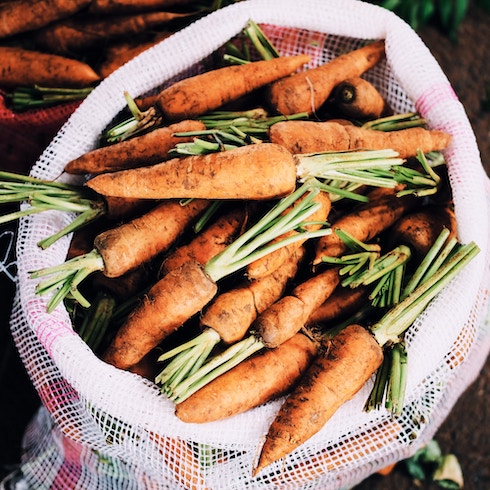
Carrots and Chives
Carrots don’t love super-hot summer weather, which makes them ideal plants to grow in the spring and fall. If you want your carrot crop to thrive, pair them with chives. Chives give off a strong aroma that helps keep notorious carrot-destroying pests (like carrot flies) away. A bonus? Some gardeners also say that growing chives near carrots can make your carrots taste better.
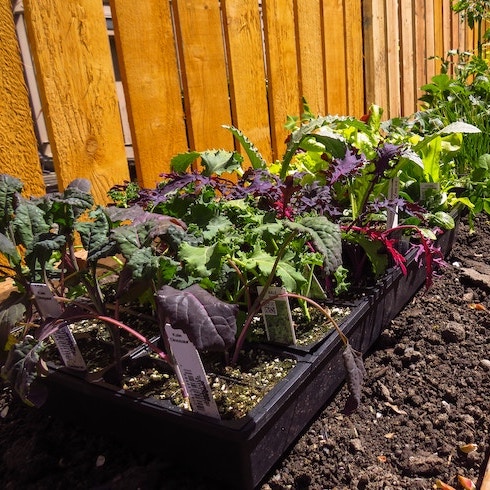
Kale and Nasturtiums
Just as radishes can help lure pests away from your lettuce, nasturtiums make excellent “trap crops” to tempt pests (like aphids) away from your kale. Beyond just helping to keep your kale safe, edible nasturtiums (you can add the flowers to salads or even as cake decorations) bring a pop of pretty colour to your fall garden. What’s the best way to plant nasturtiums as kale companion plants? Plant the flowers in between rows of kale, or use them as border plants near kale in your garden.
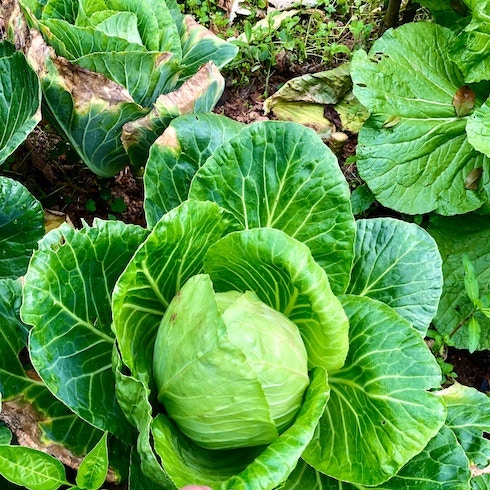
Cabbage and Dill
While dill makes an excellent cucumber companion plant for your summer garden (plus the two go great together in a picnic-ready salad), it also serves as an effective companion plant for cabbage in your fall garden. Dill serves as a repellent for cabbage-loving pests, such as cabbage worms, cabbage moths and cabbage loopers.
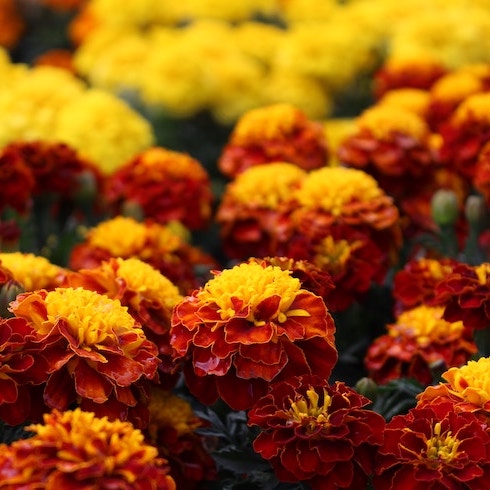
Brussels Sprouts and Marigolds
Brussels sprouts are another member of the brassica plant family (like cabbage and kale) that make a delicious fall garden crop. To keep your Brussels sprouts safe while they grow, consider planting marigolds nearby as companion plants, as the scent of the flowers help deter pests like aphids and cabbage worms. French marigolds make particularly companion plants, as they can help repel nematodes (AKA microscopic worms), which can damage the roots of Brussels sprouts.
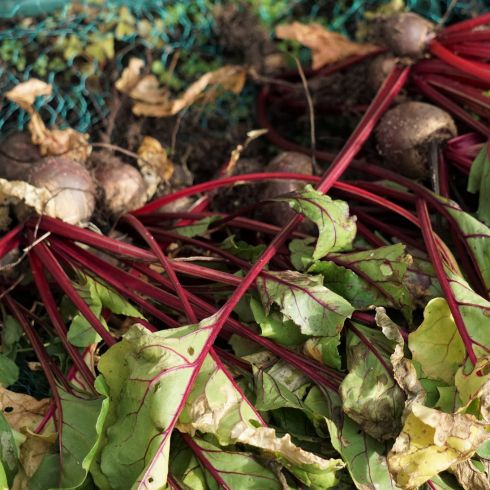
Beets and Garlic
Sweet and bright, hardy beets are a popular root vegetable in fall gardens. When grown close by (whether in between rows of beets or bordering the edges of your beet-planting area), garlic makes a wonderful beet companion plant. Garlic helps deter common beet-plaguing pests like aphids and beetles, and it can serve as a good deterrent for fungal issues that could harm beets.
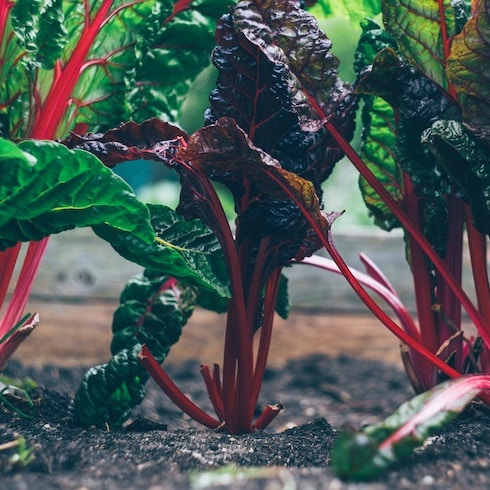
Swiss Chard and Thyme
Swiss chard is an easy-to-grow leafy veggie that does well in fall gardens. As a versatile herb, thyme makes a good companion plant for Swiss chard. Thyme’s aromatic oils can help deter pests and its roots can help improve soil health — much to the benefit of your Swiss chard. An extra perk? Thyme is also great to have on hand as part of your cocktail or mocktail garden any time of year.
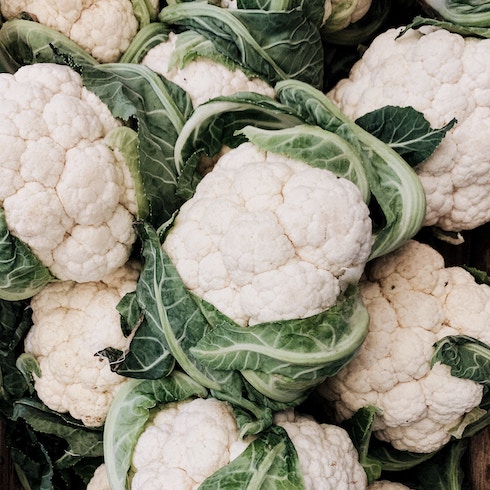
Cauliflower and Sage
Another great veggie-herb companion plant pairing for fall? Try cauliflower and sage. Sage has a strong scent that helps deter things you don’t want near your cauliflower (pests like cabbage moths) while attracting things you do want (like pollinators). One tip? Cauliflower doesn’t like to be crowded, so try planting your sage as a border plant so that both can grow in harmony.
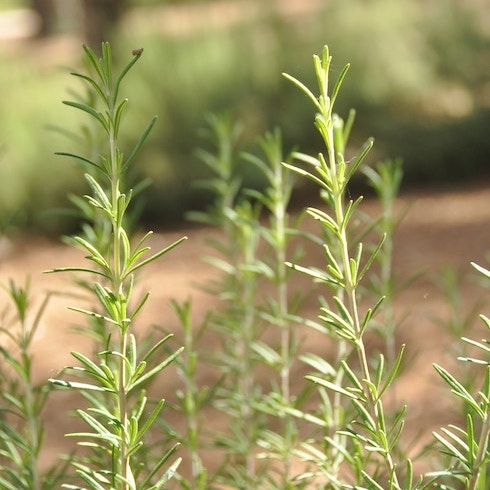
Broccoli and Rosemary
Broccoli is a hearty addition to any early fall garden, but — like many other brassica plants — it can also be a target for pests. This is why rosemary and broccoli make great garden friends: rosemary’s aroma helps repel cabbage moths and cabbage loopers. If garden space is a challenge, you can even plant rosemary in containers or pots and place it near your broccoli crop (this can be helpful for the rosemary, too, as it tends to prefer drier soil than broccoli).
Home Network your inbox.
By clicking "SIGN UP” you agree to receive emails from Home Network and accept Corus' Terms of Use and Corus' Privacy Policy.



